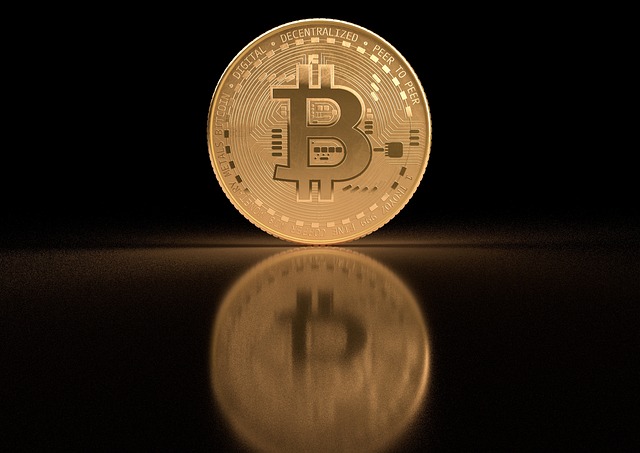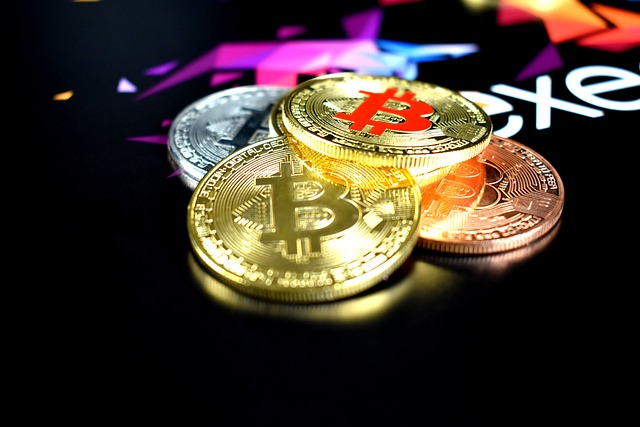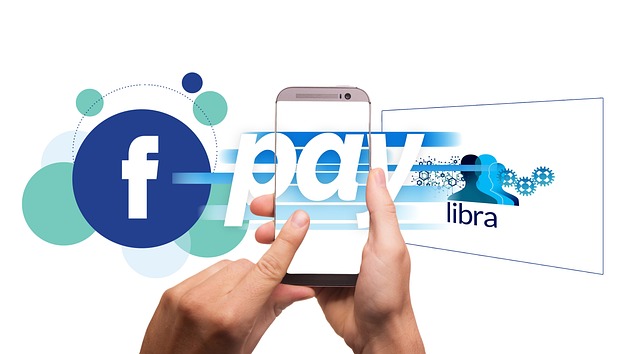The Power of DeFi: Unlocking Its Benefits
The Power of DeFi: Unlocking Its Benefits

What is DeFi and why is it revolutionizing the financial industry?
Decentralized Finance, also known as DeFi, is an innovative concept that is reshaping the financial industry as we know it. By utilizing blockchain technology, DeFi aims to eliminate intermediaries such as banks and provide a more open and inclusive financial ecosystem.
One of the key reasons why DeFi is revolutionizing the financial industry is its ability to offer various financial services without the need for traditional intermediaries. This means that individuals can have direct control over their funds, bypassing the limitations and fees associated with traditional banking systems. Additionally, DeFi applications are accessible to anyone with an internet connection, making financial services more inclusive and available to a wider range of individuals. This democratization of finance has the potential to empower people who have been underserved or excluded from traditional financial systems.
Exploring the various applications of DeFi and how they benefit individuals and businesses.
DeFi, or decentralized finance, has a wide range of applications that bring numerous benefits to individuals and businesses alike. One such application is decentralized lending and borrowing. With DeFi, users can lend out their digital assets and earn interest, allowing them to passively grow their wealth. On the other hand, individuals and businesses in need of loans can easily access funds without going through traditional financial intermediaries, making the lending process more efficient and cost-effective. This not only creates opportunities for investors but also enables entrepreneurs and small businesses to obtain much-needed capital for their projects or operations.
Another application of DeFi is decentralized exchanges. Unlike traditional centralized exchanges that often require users to pass through extensive KYC (Know Your Customer) processes and undergo lengthy approval periods, decentralized exchanges allow for peer-to-peer trading directly from users’ digital wallets. This eliminates the need for intermediaries and significantly improves the speed and accessibility of trading. Furthermore, decentralized exchanges also enable users to trade a wide array of digital assets, including cryptocurrencies, tokens, and other financial instruments, providing individuals and businesses with greater flexibility in managing their digital assets and participating in the global financial market.
In conclusion, DeFi brings a multitude of applications that benefit individuals and businesses by promoting financial inclusivity, efficiency, and flexibility. From decentralized lending and borrowing to decentralized exchanges, these applications enable users to access capital, earn passive income, and trade digital assets in a more user-friendly and cost-effective manner. As DeFi continues to evolve and gain traction, it has the potential to reshape the financial industry and empower individuals and businesses to have more control over their finances.
• Decentralized lending and borrowing: Users can lend out their digital assets and earn interest, allowing for passive wealth growth. Individuals and businesses can easily access loans without traditional financial intermediaries, making the process more efficient and cost-effective.
• Decentralized exchanges: Peer-to-peer trading directly from users’ wallets eliminates the need for intermediaries. It improves speed, accessibility, and allows for trading a wide array of digital assets, providing flexibility in managing digital assets and participating in the global financial market.
• Financial inclusivity: DeFi applications create opportunities for investors while enabling entrepreneurs and small businesses to obtain capital for projects or operations.
• Efficiency: By eliminating lengthy approval periods and extensive KYC processes, decentralized exchanges improve the speed of transactions.
• Flexibility: DeFi applications allow individuals and businesses to have more control over their finances by accessing capital, earning passive income, and trading digital assets in a user-friendly manner.
Overall impact of DeFi on the financial industry:
– Reshaping the industry: As DeFi continues to evolve and gain traction, it has the potential to reshape the entire financial industry.
– Empowering individuals & businesses: DeFi empowers individuals by giving them greater control over their finances through various applications.
– Promoting financial independence & autonomy: With decentralized lending/borrowing options available through DeFi platforms, people can access funds without relying solely on traditional institutions.
– Cost-effectiveness & efficiency improvement: The elimination of intermediaries reduces costs associated with traditional finance processes while improving overall efficiency.
– Enhanced accessibility & inclusion: Through its decentralized nature, DeFi provides equal opportunities for anyone with an internet connection to participate in various financial activities.
Understanding the decentralized nature of DeFi and its potential to disrupt traditional financial systems.
One of the most notable characteristics of DeFi is its decentralized nature. Unlike traditional financial systems, which rely on centralized authorities such as banks or governments to govern and control transactions, DeFi operates on a peer-to-peer network. This means that individuals can directly interact and transact with each other without the need for intermediaries. Such decentralization brings several benefits, including enhanced privacy and security, as well as reduced fees and transaction times.
Furthermore, the decentralized nature of DeFi allows for greater accessibility and inclusivity. In traditional financial systems, certain individuals may face barriers to entry due to factors such as geographical location, lack of documentation, or limited access to banking services. However, with DeFi, anyone with an internet connection can participate in financial activities and have access to a wide range of financial services. This opens up new opportunities for individuals who have been previously excluded from the traditional financial system, promoting financial inclusivity and empowerment.
The key advantages of DeFi, including increased accessibility and financial inclusivity.
DeFi, short for Decentralized Finance, offers a myriad of advantages, but perhaps the most notable ones are increased accessibility and financial inclusivity. Traditional financial services often come with numerous barriers that limit access for many individuals and exclude those without access to banks or necessary identification. DeFi, on the other hand, operates on a decentralized network, where anyone with an internet connection can participate, regardless of their location or socioeconomic status.
By leveraging blockchain technology, DeFi eliminates the need for intermediaries such as banks, which can introduce unnecessary fees and delays. Instead, individuals can directly interact with DeFi platforms and access a wide range of financial services, including lending, borrowing, and even trading of digital assets. This increased accessibility empowers individuals who were previously excluded from traditional systems, giving them greater control over their finances and the opportunity to participate in global financial markets. It’s a leap towards a more inclusive financial ecosystem that bypasses the limitations imposed by traditional financial institutions.
How DeFi can provide opportunities for individuals to earn passive income through lending and staking.
DeFi, or decentralized finance, is revolutionizing the financial industry by offering individuals new avenues to earn passive income through lending and staking. With traditional banking systems, earning interest on savings or investments typically requires navigating complex processes and dealing with intermediaries. However, DeFi eliminates these barriers by creating an open, decentralized network that allows individuals to lend their digital assets directly to borrowers or participate in staking activities.
By participating in lending protocols, individuals can earn passive income by providing liquidity to the DeFi ecosystem. This involves depositing their digital assets into smart contracts, which then lend those assets to borrowers and earn interest on behalf of the lender. Depending on the lending platform and the specific assets being lent, individuals can earn a significant yield on their investments. Similarly, staking involves holding and storing digital assets in a specified wallet or platform and actively participating in the validation and verification of transactions on a blockchain network. In return for this participation, individuals can earn staking rewards, which contribute to their passive income stream. Overall, DeFi provides a democratic and accessible way for individuals to grow their wealth and generate income without relying on traditional financial institutions.
Exploring the risks and challenges associated with DeFi and how to mitigate them.
While DeFi presents numerous opportunities, it also comes with its fair share of risks and challenges. One of the main concerns is the potential for smart contract vulnerabilities. Smart contracts form the backbone of most DeFi platforms, and any flaws in their coding can be exploited by malicious actors.

Another challenge associated with DeFi is the lack of regulation. As a decentralized industry, DeFi operates outside the traditional regulatory framework of the financial sector, which can leave participants vulnerable to fraudulent schemes and scams. To mitigate this risk, individuals must be cautious when engaging with unfamiliar or unverified projects. Conducting thorough research, reading user reviews, and seeking expert opinions can help identify credible and reputable DeFi platforms. Additionally, the development of regulatory frameworks specifically tailored to the unique characteristics of DeFi can provide a more secure and transparent environment for participants.
The role of smart contracts in DeFi and how they ensure transparency and security.
Smart contracts play a crucial role in the world of DeFi by providing transparency and security to users. These digital agreements are self-executing and automatically enforce the terms and conditions set within them. Built on blockchain technology, smart contracts eliminate the need for intermediaries and allow for a direct peer-to-peer interaction. This not only reduces costs but also ensures that transactions are conducted in a transparent manner, as all the details are recorded on the blockchain and can be accessed by anyone.
The transparency offered by smart contracts in DeFi is particularly important because it allows participants to have a clear understanding of how a particular financial product or service operates. With the code of the contract being publicly available, users can independently verify the rules and functions, ensuring there is no hidden agenda or manipulation. This level of transparency builds trust among users, reducing the need for reliance on centralized authorities. Furthermore, smart contracts provide enhanced security by eliminating the possibility of fraud or manipulation, as the terms of the agreement are coded and cannot be altered without consensus from all parties involved.
Case studies of successful DeFi projects and their impact on the global economy.
Decentralized Finance (DeFi) has gained significant attention as it continues to prove its potential in reshaping the global economy. One noteworthy case study is the rise of Aave, a decentralized lending and borrowing platform built on the Ethereum blockchain. Aave has revolutionized the concept of lending by eliminating intermediaries and allowing users to directly borrow and lend funds without relying on traditional financial institutions. This has not only increased accessibility to financial services but also reduced costs and enabled individuals around the world to participate in the global economy, regardless of their location or socioeconomic background. Aave’s success has demonstrated the power of DeFi in providing efficient and inclusive financial solutions that have a tangible impact on the global economy.
Another impactful case study is MakerDAO, the first decentralized stablecoin project.

The future of DeFi and its potential to reshape the way we interact with money and finance.
DeFi, short for decentralized finance, holds the key to an exciting future where traditional financial systems are challenged and transformed. Its potential goes beyond being just another buzzword in the industry; it has the power to reshape the way we interact with money and finance. DeFi offers an alternative to the traditional centralized banking systems by leveraging blockchain technology to create open, transparent, and accessible financial solutions.
One of the most significant ways DeFi can reshape our financial interactions is by offering increased accessibility and financial inclusivity. With DeFi, individuals from all walks of life can access financial services without the need for a centralized intermediary. This opens up a world of opportunities, especially for the historically underserved and unbanked populations. By democratizing access to financial services, DeFi has the potential to bridge the gap between the privileged and the marginalized, leveling the playing field and empowering individuals to take control of their financial future.
How to get started with DeFi and recommended resources for further exploration.
Getting started with DeFi might seem overwhelming at first, but with the right resources and guidance, it can be a rewarding experience.

First and foremost, it’s crucial to educate yourself about the basic concepts and principles of DeFi. There are various online tutorials, articles, and videos available that explain the fundamentals of decentralized finance in simple terms. Websites like CoinDesk, CoinGecko, and DeFi Pulse provide valuable insights and updates on the latest trends and developments in the DeFi space. Additionally, podcasts such as “The DeFi Download” and “Bankless” offer in-depth discussions with industry experts, making it easier to grasp complex concepts.
Once you have a good understanding of the basics, the next step is to choose a suitable platform to start your DeFi journey. Ethereum, being the most widely used blockchain for DeFi projects, is a logical starting point. Platforms like MetaMask and MyEtherWallet allow you to create an Ethereum wallet, which is essential for interacting with decentralized applications (dApps). These wallets provide you with a unique wallet address and private keys that give you control over your funds. Remember to store your private keys securely to avoid any possible breaches.
What is DeFi and why is it revolutionizing the financial industry?
DeFi, short for decentralized finance, is a system that allows people to access financial services using blockchain technology. It’s revolutionizing the financial industry because it eliminates the need for intermediaries like banks and enables greater financial inclusivity.
Can you explain the decentralized nature of DeFi and how it disrupts traditional financial systems?
DeFi operates on a decentralized network, meaning there’s no central authority governing it. This disrupts traditional financial systems by removing the need for intermediaries, reducing costs, and increasing transparency and security.
What are the key advantages of DeFi?
DeFi offers increased accessibility, financial inclusivity, and the ability to earn passive income through lending and staking. It also provides greater control over your finances and removes the reliance on traditional banking systems.
What are some of the applications of DeFi and how do they benefit individuals and businesses?
DeFi applications include lending platforms, decentralized exchanges, and stablecoins. These benefit individuals by offering cheaper and faster transactions, access to loans without the need for a credit check, and the ability to earn interest on their assets. For businesses, it opens up new funding opportunities and reduces the need for costly intermediaries.
What are the risks and challenges associated with DeFi and how can they be mitigated?
Risks in DeFi include smart contract vulnerabilities, hacking, and regulatory uncertainties. To mitigate these risks, it’s important to conduct thorough research before investing or participating in any DeFi project, use reputable platforms, and keep assets secure using hardware wallets or cold storage.
How do smart contracts ensure transparency and security in DeFi?
Smart contracts are self-executing contracts with predefined rules encoded on the blockchain. They ensure transparency and security in DeFi by automatically executing transactions without the need for intermediaries. Once deployed, smart contracts cannot be altered, providing a reliable and tamper-proof system.
Can you provide some case studies of successful DeFi projects and their impact on the global economy?
Aave and Compound are examples of successful DeFi lending platforms that have attracted billions of dollars in assets. These projects have empowered individuals to earn interest on their assets and provided efficient lending solutions, contributing to the growth of the DeFi ecosystem and reshaping the global financial landscape.
How does DeFi potentially reshape the way we interact with money and finance in the future?
DeFi has the potential to eliminate the need for traditional banking systems, making financial services more accessible and inclusive. It could redefine how we handle loans, investments, and payments, enabling a more decentralized and transparent financial ecosystem.
How can I get started with DeFi and what are some recommended resources for further exploration?
To get started with DeFi, you can begin by researching and understanding the basics of blockchain technology and decentralized finance. Some recommended resources for further exploration include DeFi websites, blogs, forums, and educational platforms such as CoinGecko, DeFi Pulse, and Ethereum’s official documentation. It’s also important to exercise caution and start with small investments or experiments to familiarize yourself with the DeFi space.
Todays Featured Product:
Buy, exchange and grow your crypto securely with a Ledger hardware wallet, combined with the Ledger Live app. It’s never been easier to keep your crypto safe and accessible. Buy direct from Ledger.com and get todays Special Offers Here.




